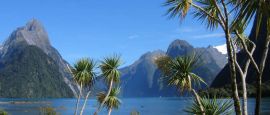New Zealand Health Care and Vaccinations
| Title | Special precautions |
|---|---|
| Diphtheria |
No |
| Hepatitis A |
No |
| Malaria |
No |
| Rabies |
No |
| Tetanus |
Yes |
| Typhoid |
No |
| Yellow Fever |
No |
New Zealand has an advanced and sophisticated health care system; medical facilities, both public and private, are of a high standard and staff are well trained. Long-staying visitors with a valid permit to stay for two or more years and short-term British visitors are entitled to health care services on the same basis as New Zealand citizens. Travellers from other countries should find out if they are covered by reciprocal health care arrangements. Australia, for example, has such an agreement as long as long as citizens carry their Medicare card. Comprehensive medical insurance is strongly recommended before travelling to cover any additional charges. Trips to the doctor will incur a fee, with prescription charges on top of that. Dentists and hospital services are also expensive. Visitors bringing in a quantity of medicines ought to ensure that they have a doctor’s certificate to avoid complications and potential problems at New Zealand customs.
Tap water is considered safe to drink. Water from lakes, waterways and rivers ought to be boiled first to ensure that it is free from Giardia, a water-borne bacterial parasite that can cause diarrhoea and vomiting. Milk is pasteurised and dairy products are safe for consumption. Local meat, poultry, seafood, fruit and vegetables are generally considered safe to eat.
Wildlife: Sand-flies are found throughout the country but are especially common in the south, around Fiordland. Their bite isn’t poisonous but can cause an itchy irritant. Use environmentally friendly repellents to reduce the risk of being bitten. New Zealand has virtually no dangerous animals; the exception is the katipo spider, which although rare, can be found on the North Island and parts of the South. It has a painful bite that can be fatal if untreated; antivenom is widely available. The white-tailed spider, introduced from Australia, also delivers a nasty bite but again, these are uncommon.
Natural disaster: Because of its location in a seismically active area of the world, New Zealand is periodically affected by natural disasters such as volcanic eruptions and earthquakes. These events are generally rare but can have a dramatic and devastating impact. If visitors are caught in an earthquake, they should take cover under a table or stand in a doorway; if they are outside, they should keep away from buildings, trees and rock formations that might fall. Monitor local news for updates and warnings and follow any advice or directions given by local authorities.
Other risks: Vaccinations against tuberculosis and hepatitis B are sometimes recommended. Due to a thinning of the ozone layer over New Zealand, sunburn can occur quicker than in other areas of the world and precautions should be taken; such as shortening exposure time to the sun, wearing hats and applying high-factor sun protection. New Zealand has one of the highest rates of skin cancer in the world and the risk should not be underestimated.
Conversely, the country is also affected by severe cold weather, with high winds, heavy rain and snowfall possible during the winter months. Travellers visiting at this time should ensure they are properly equipped and dressed for these conditions. Local emergency services and disaster response forces are well-equipped and qualified to help.
Do you have any Feedback about this page?
© 2026 Columbus Travel Media Ltd. All rights reserved. No part of this site may be reproduced without our written permission, click here for information on Columbus Content Solutions.








 You know where
You know where